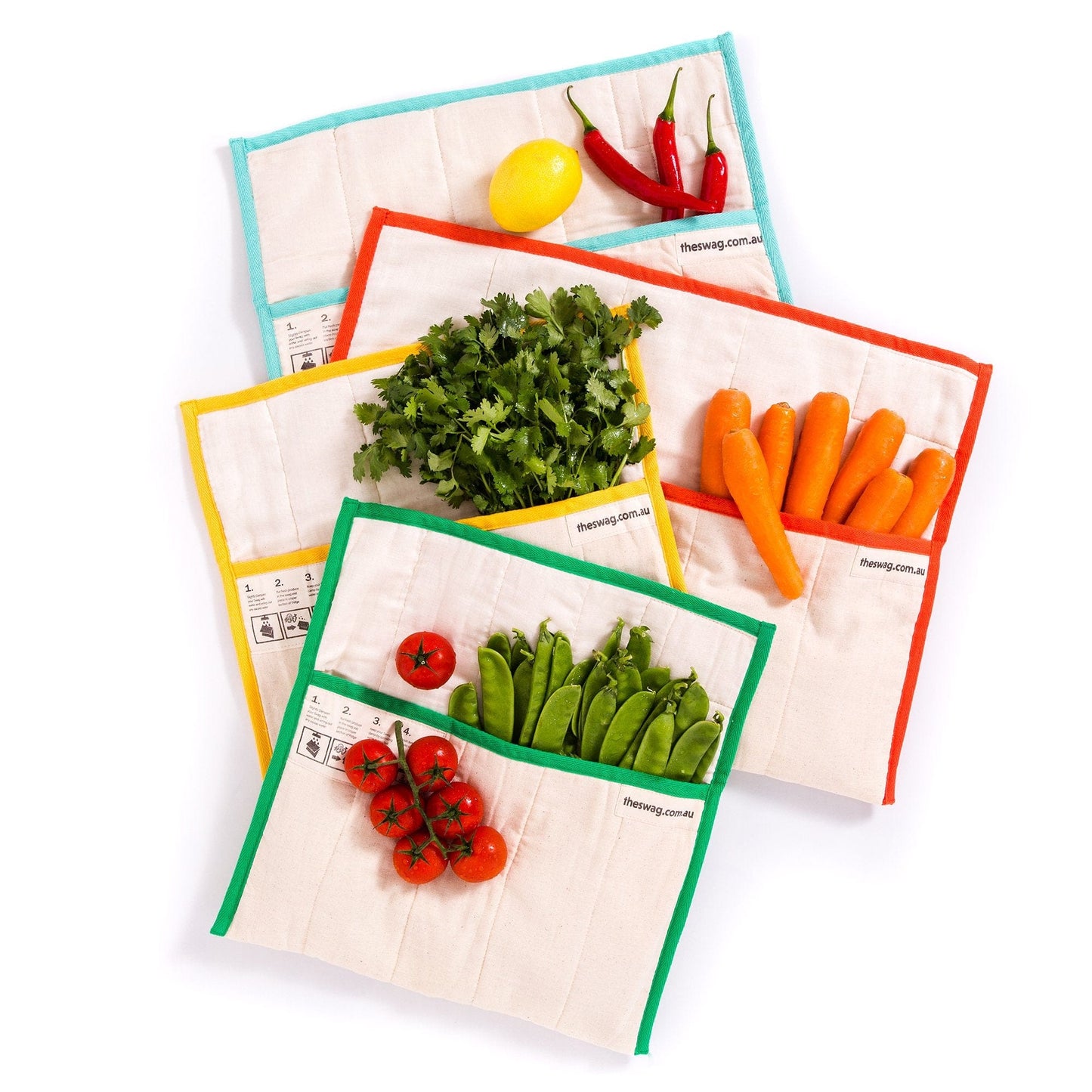The Impact of Plastic on Women’s Health
This week in Australia is Women’s Health Week which is a great time to assess your lifestyle and focus on the factors that may be impacting your well-being. One area that often gets overlooked is the effect of plastic on hormones and overall health. While plastic is a convenient and sadly common part of modern life, exposure to the harsh chemicals in plastics can pose significant risks, especially when it comes to hormone disruption and long-term health concerns.
Let’s explore how plastic can affect women’s health and some simple, practical ways to reduce your plastic use.
How Plastic Can Cause Hormonal Imbalance:
Endocrine Disruptors: Plastics often contain chemicals like Bisphenol A (BPA) and phthalates, which are classified as endocrine disruptors. These chemicals can mimic or interfere with the body’s natural hormones, particularly estrogen. For women, this disruption can result in hormonal imbalances that manifest in a variety of ways, such as irregular menstrual cycles, severe PMS symptoms, and exacerbation of conditions like polycystic ovary syndrome (PCOS) and endometriosis. Over time, chronic exposure to these chemicals can lead to more serious reproductive health issues, including infertility.
Can Plastic Cause An Increased Risk of Breast Cancer?
Estrogen Mimics: BPA and similar chemicals found in plastics can bind to estrogen receptors in the body, which may stimulate the growth of estrogen-sensitive tissues, including breast tissue. This is particularly concerning because overexposure to estrogen or estrogen-like chemicals has been linked to an increased risk of breast cancer. Women exposed to higher levels of these chemicals may face a higher likelihood of developing breast cancer over time, particularly if they are already genetically predisposed.
Plastic & Reproductive Health Issues:
Fertility and Pregnancy: The chemicals in plastics don’t just affect menstruation; they can also have a profound impact on fertility and pregnancy. Research has shown that exposure to BPA and phthalates can impair egg quality, disrupt ovulation, and reduce fertility in women. During pregnancy, these chemicals can cross the placental barrier, potentially affecting the developing fetus. Exposure has been linked to complications such as preterm birth, low birth weight, and developmental issues in children.
Plastic’s Impact On Thyroid Function:
Thyroid Disruption: The thyroid gland plays a crucial role in regulating metabolism, energy levels, and overall hormonal balance. Chemicals found in plastics, particularly BPA, can interfere with the normal functioning of the thyroid gland. This can lead to conditions such as hypothyroidism, where the thyroid is underactive, causing symptoms like fatigue, weight gain, and depression. An underactive thyroid can also contribute to infertility and menstrual irregularities, further complicating women’s health.
Plastic & Metabolic and Weight Issues:
Obesogens: Some chemicals in plastics, known as obesogens, can interfere with the body’s metabolic processes, making it harder to maintain a healthy weight. These chemicals can alter how the body stores fat and processes energy, leading to increased fat accumulation, particularly in the abdominal area. This not only affects physical appearance but also increases the risk of metabolic disorders like type 2 diabetes and cardiovascular disease, both of which are significant health concerns for women.
Can Plastic Weaken The Immune System?
Chronic Inflammation: Prolonged exposure to plastic chemicals can trigger chronic inflammation in the body, which has been linked to a weakened immune system. For women, this can result in increased susceptibility to infections, slower recovery times, and a higher risk of autoimmune disorders. Chronic inflammation is also a precursor to many chronic diseases, including heart disease and cancer.
Understanding these risks is crucial for making informed choices about everyday products and their impact on your health. While it’s nearly impossible to eliminate all plastic from your life, reducing your exposure to these harmful chemicals can significantly improve your overall well-being. Making simple swaps can have a meaningful impact on your health, particularly over the long term.
Living a Plastic-Free Life: Simple Steps to Protect Your Health
Reducing your exposure to plastic doesn’t have to be overwhelming. Here are some practical tips to help you live a more plastic-free life and protect your health:
-
Switch to Glass or Stainless Steel Containers: Instead of using plastic Tupperware that can leak harmful chemicals into your food, opt for glass or stainless steel containers. They’re safer, more durable, and better for the environment.
-
Use Reusable Produce Bags: When shopping for fresh fruits and veggies, ditch the plastic produce bags and choose eco-friendly alternatives like The Swag produce bags. These reusable bags not only reduce plastic waste but also keep your produce fresher for longer.
-
Avoid Plastic Water Bottles: Invest in a high-quality stainless steel or glass water bottle to stay hydrated without the risk of BPA and other chemicals leaching into your drink.
-
Say No to Plastic Wrap: Replace plastic wrap with wax wraps or silicone food covers. They’re reusable, easy to clean, and a great way to keep your food fresh without using plastic.
-
Choose Non-Toxic Personal Care Products: Many personal care products come in plastic packaging and contain chemicals that can be absorbed through your skin. Look for brands that use glass containers or eco-friendly packaging, and choose products made with natural, non-toxic ingredients.
-
Shop Smart: Support brands that are committed to reducing plastic waste and offering sustainable alternatives. Every purchase you make is a vote for the kind of world you want to live in.
The Swag Produce Bag: Your Plastic-Free Companion
One of the easiest ways to reduce your plastic use is by incorporating The Swag produce bag into your shopping routine. These reusable bags are made from natural, breathable materials that keep your fruits and vegetables fresh for longer—without the need for plastic. By using The Swag, you’re not only protecting your health by avoiding plastic, but you’re also making a positive impact on the environment.
This Women’s Health Week, consider taking small steps to reduce your plastic use and protect your health. Your body - and the planet - will thank you.



